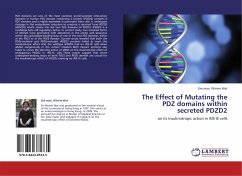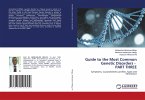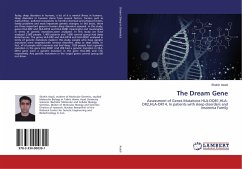PDZ domains are one of the most common protein-protein interaction domains in human. PDZ domain containing 2 protein (PDZD2) contains 6 PDZ domains and is highly expressed in pancreatic beta cells. It undergoes cleavage in the endoplasmic reticulum to produce a secreted form PDZD2 (sPDZD2) which retains the last two PDZ domains of PDZD2. sPDZD2 is a candidate beta cell regulatory factor. In current study, two mutated forms of sPDZD2 were generated with alterations in the amino acid sequence within the carboxylate-binding loop of one of the two PDZ domains, either at the PDZ5 or at the PDZ6 domain. Current study revealed that both the PDZ5-mutated and PDZ6-mutated sPDZD2 proteins failed to exert the insulinotropic effect that the wildtype sPDZD2 had on INS-1E cells when added exogenously in the culture medium. Both mutant proteins also failed to rescue the silencing action of siRNA on the insulinotropic effect of endogenous PDZD2 in INS-1E cells. These results suggest that intact carboxylate-binding loops of both PDZ5 and PDZ6 domain are crucial for the insulinotropic effect of sPDZD2 exerting on INS-1E cells.








